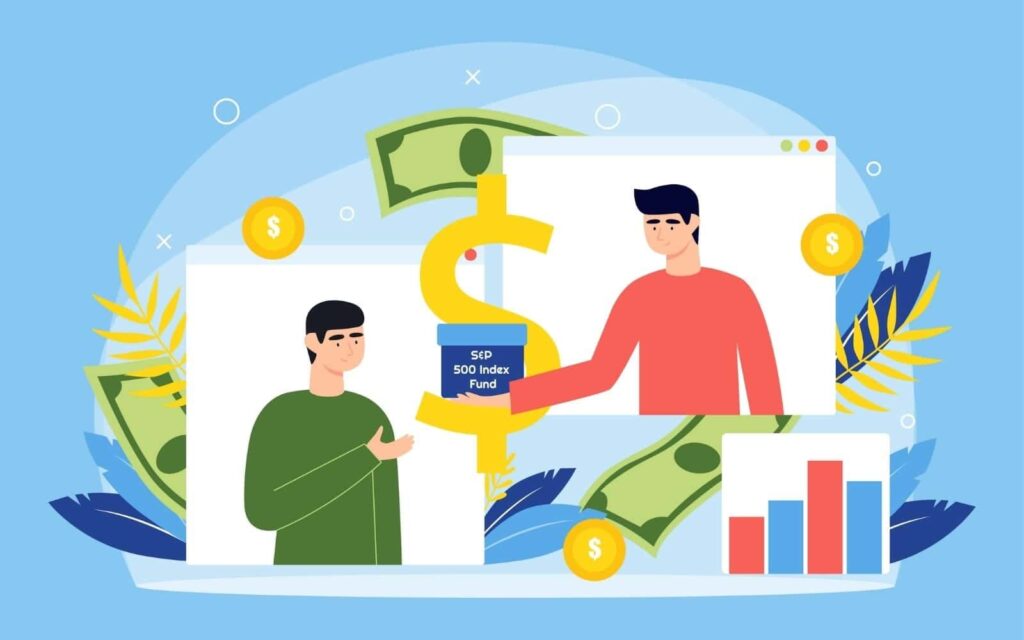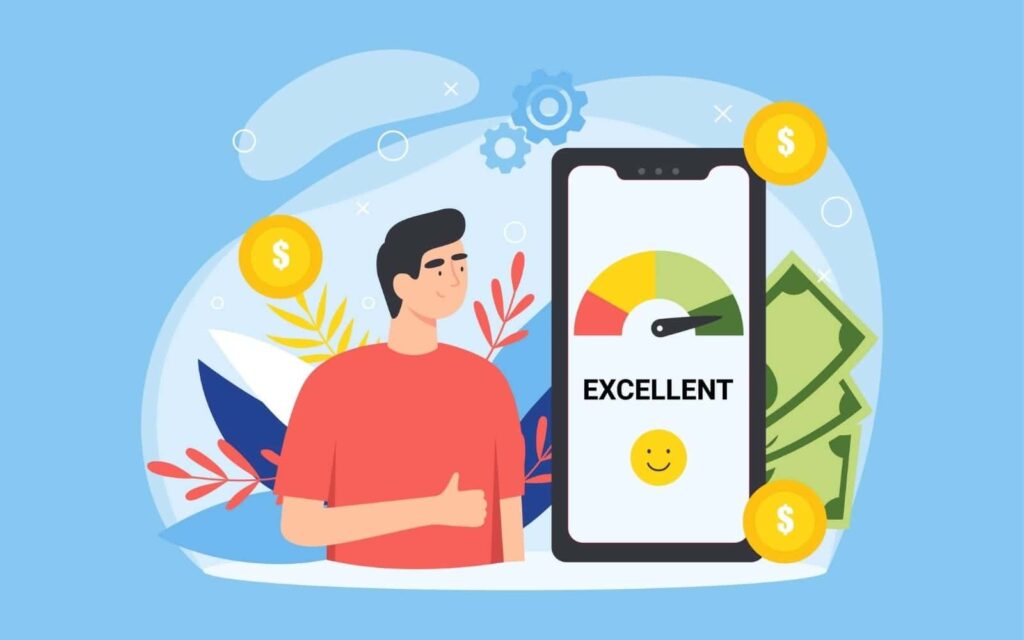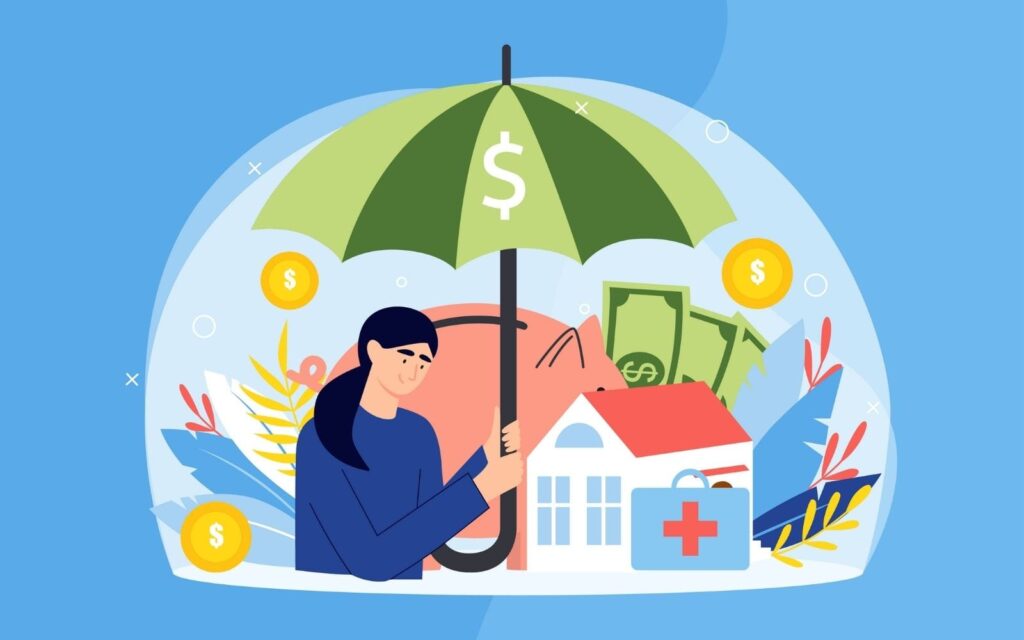Disclosure: This post may contain affiliate links. If you click on a link I may make a small commission at no extra cost to you. You can read the full disclosure here.
Last Updated on October 23, 2022 by Chris Panteli
What Should You Do With The Money Left Over After All Monthly Expenses Are Paid
Each month when you get paid, what do you do first? No doubt, paying all your expenses for the month is first on the list.
Rent, utilities, groceries, and more can all be paid up to date when payday rolls around. It’s a great feeling knowing the bills are handled!
What should you do with the money left over after all monthly expenses are paid?
You could treat yourself to some new clothes or an expensive meal at that new restaurant you’ve been wanting to visit. Maybe you use the leftover money to pay off some debt or you could even save it all. Heck, you could stuff the cash in a mattress if you wanted to!
Ultimately, you can do whatever you like with your own money. If you have a plan for it though, you will make much better use of your leftover money each month.
- What Should You Do With The Money Left Over After All Monthly Expenses Are Paid
- What Should You Do With the Money Left Over After Expenses?
- How To Boost Your Money After Expenses are Paid
- Which Bills Can You Get Rid Of?
- 6 Tips To Boost Your Income
- Should All Leftover Money Be Spent?
- What Are Essential and Non-Essential Expenses
- When Should Debt Be Prioritised
- Is There a Recommended Amount You Should Save?
- FAQs
- What Should You Do With The Money Left Over After All Monthly Expenses Are Paid
What Should You Do With the Money Left Over After Expenses?

Every month you will have to decide what to do with the leftover money after expenses are paid. Whether you have a small amount or are fortunate enough to have a lot, using it wisely means better results in the long term.
You could spend it all each month on whatever takes your fancy (and you should treat yourself sometimes), but saving some is highly recommended.
Emergency Fund
Building an emergency fund is the first thing you should do with the leftover money. That way if your financial situation takes an unexpected turn you can still cover essential living expenses.
If you lose your job or have an unexpected bill, then having an emergency fund means you can still pay your mortgage payment, credit card payments, or car payment.
Invest
Opening an investment account can be done starting with a few dollars a month. Your financial goals should include using some of your leftover money each month to grow your investments. That way you can start building wealth!
Acorns Later Retirement
An easy, automated way to save for retirement. You can put your extra cash to work for as little as $5 at a time – straight into an IRA and portfolio that’s right for you
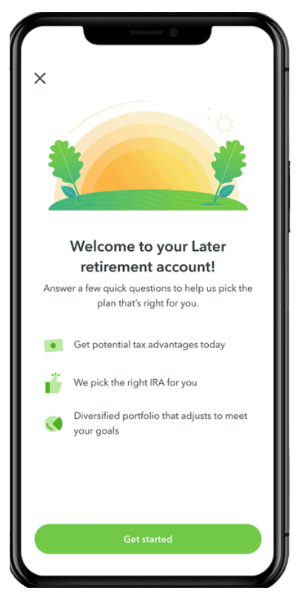
Save
Starting a savings account with a good interest rate is a must once you’ve got a separate emergency fund built up. Make sure to include in your monthly budget a set amount to add to your savings.
You could even set up a recurring monthly payment to make sure it’s automatically saved each month. Having a savings goal is a great way to stick to your plan of saving money. A dream vacation, brand new car, or early retirement are all savings goals many aim for.
Recommended: 22 Awesome Low Stress Jobs After Retirement
How To Boost Your Money After Expenses are Paid
Staying on top of your personal finances can be difficult. Many people live paycheck to paycheck which makes discussing finances a tricky topic.
Taking some simple steps once your expenses are paid means leftover money can be put to good use.
If your bank account or checking account has online banking, use this to closely monitor all spending. Knowing where your money is going is an essential way to stop unnecessary spending!
Make sure no monthly bill goes unpaid. That way you avoid fees or interest charges. Prioritize using any leftover money towards debt payments, credit card debt, or paying a student loan.
Using any leftover monthly income to clear debts faster is a great idea. Why? Because once those debts are gone you will have more money leftover in the future!
Which Bills Can You Get Rid Of?

Getting rid of all the bills would be heavenly, wouldn’t it! Sadly, bills are a fact of life. Even if you lived off the grid, there would still be some expenses to pay.
You can take action to reduce bills by getting rid of those you don’t need or in the case of debts by getting them paid off fast.
Some bills are unavoidable no matter what action you take. This includes –
- Rent or mortgage
- Food
- Utilities
- Transportation costs
- Insurance
However, there are some bills that can be paid off or canceled altogether –
- Student loans
- Personal loans
- Credit card bill
- Subscriptions (gym, streaming services, etc)
Leftover money each month can be used to pay off debts quicker. Once credit union loans, credit cards, and other debts are paid off, then you’ve got more money left over after expenses are paid!
Check subscriptions, cable, and other entertainment expenses and cancel any that you no longer use. Any money you can save can be used for debts, savings, or spending.
6 Tips To Boost Your Income
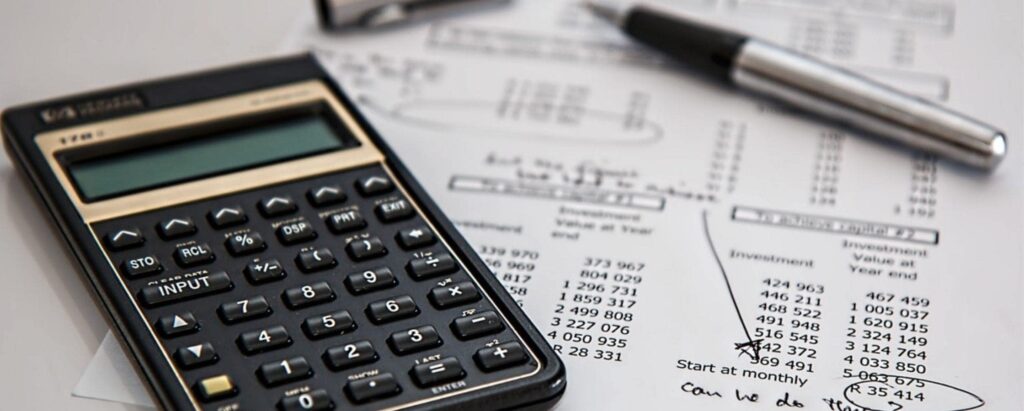
Boosting your income means once expenses are paid, you can enjoy having more money left over.
These 6 tips to boost your income are all guaranteed ways towards financial security.
Budget
Budgeting is an essential part of becoming financially secure. Start by creating a budget detailing every expense to the last cent. Another good tip is to track spending and record actual spending vs expected.
By understanding your discretionary income you can incorporate this into the budget.
Once you’ve got exact figures for gross income and expenses you can better choose what to do with the leftover money.
Beautiful 165 Page Budget Planner Printable
Do you feel overwhelmed when it comes to organizing your finances? With this incredible 165 Page Budget Planner Printable you can take back control of your money, keep on top of your budget and totally rock your finances; stress-free!
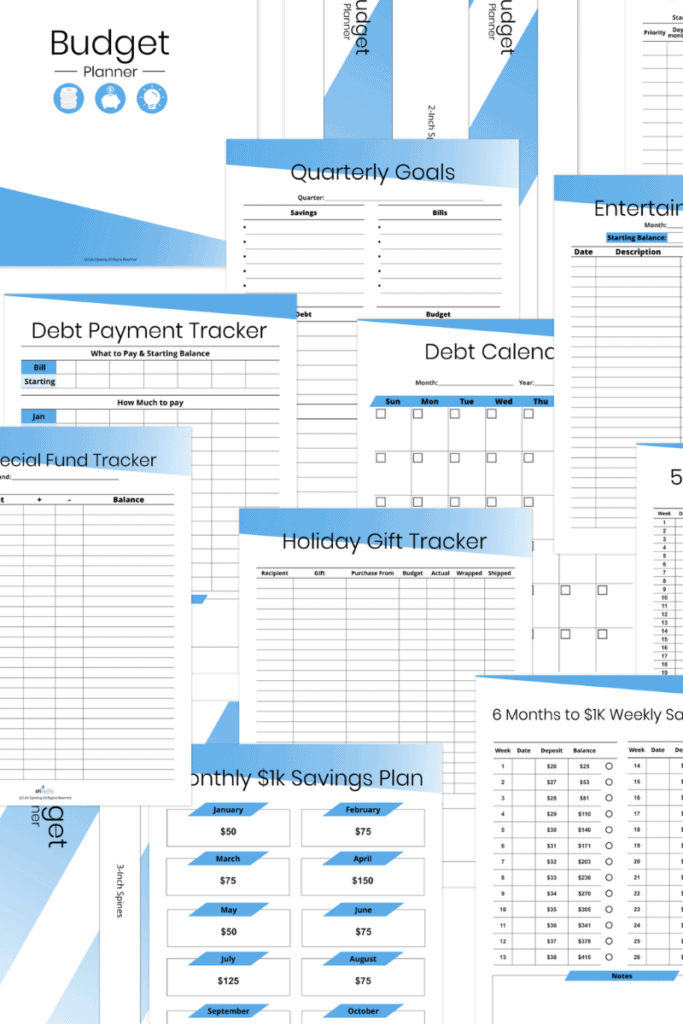
You should know exactly how much money is leftover thanks to your epic budget. The extra money could be put towards paying down debts faster. Paying off high-interest debts first is usually best.
Putting money into savings or investments is another good use for leftover money. Anything you can save now is helpful towards building wealth for the future.
Cut Expenses
Cutting expenses is a surefire way to boost leftover money! Expenses for housing, transportation, food, and utilities are unavoidable. However, you could save money by making some changes.
Housing costs could be reduced by taking in a lodger or moving to a cheaper area. Transportation costs could be reduced by using public transport or carpooling with colleagues.
Money can be saved on food by eating out less, making your own lunch instead of buying, and switching to cheaper brands. It’s always a good idea to have a meal plan and a list when you go shopping.
$5 Meal Plan
Let the team at $5 Meal Plan save you money and time by planning your food for the week!

Entertainment is an expense that can often be reduced. If you pay for a lot of subscriptions, consider canceling some or all of them. Limiting nights out or arranging cheaper activities are other good ways to reduce expenses.
Please note that no one is saying you shouldn’t enjoy yourself! Simply budget for spending on luxuries and entertainment without going overboard. Controlling your spending means much more money left over each month once all monthly expenses are paid.
Increase Your Earnings
Earning extra money is another way to boost your income. Picking up over time in your existing job may be a good start.
Others choose to start a side hustle either online or offline. Freelancing, blogging, or selling hand-made items are popular online side hustles.
Driving for Uber, dog walking, or babysitting is another good way to earn extra cash. Many people earn a decent amount of extra money selling stuff they no longer need. You could host yard sales or use eBay to declutter your home and earn extra cash.
It’s important for your mental health to give yourself a break from working each week. Yet, even a few hours a week of extra work could be the boost your income needs to thrive.
Check What You’re Owed
Many people are entitled to help or owed money without realizing it. There could be a tax overpayment sitting there right now with your name on it!
Other examples of money owed include pensions, bank accounts, and insurance policies.
Thankfully it’s easier to find the money you are owed by using the government’s Unclaimed Money website.
Dip Into Emergency Savings
Building an emergency fund is recommended for when those unexpected bills hit. If you’ve got emergency savings, then use them!
Sticking to a budget should mean all bills are paid on time. If you get an unexpected bill, this can often ruin a good budget as you need to pay it using money earmarked for something else.
By using those emergency savings your budget can stay on track. Just make sure to replenish the savings as soon as you can!
Ask For Help
Pride often stops us from reaching out for help. You may feel embarrassed or that you should be able to figure things out.
There is no need to be ashamed about asking for help. Speaking to a financial advisor, trusted friend, or a family member can be the first step to solving any financial difficulties you are experiencing.
Take all the help you can get.
You may also be entitled to help with food, housing, and health care costs. Check the Government Benefits page to apply for any assistance you can.
Should All Leftover Money Be Spent?
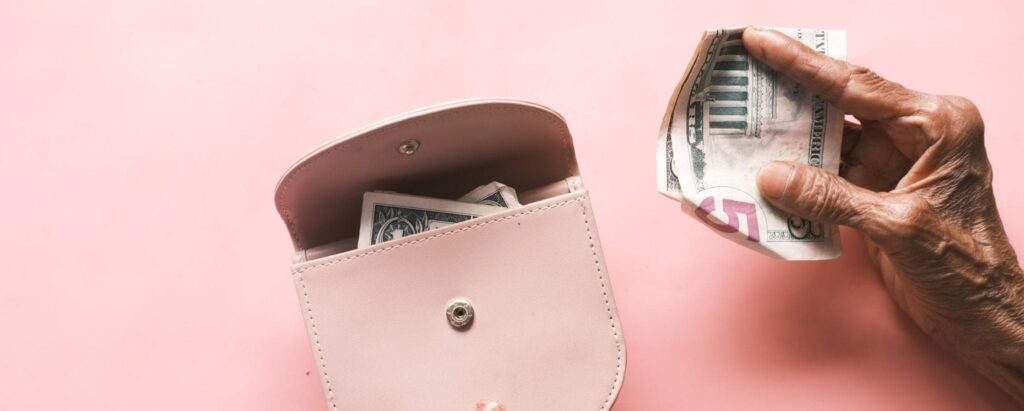
Deciding what to do with leftover money is a nice problem to have. You could spend it all on dinners out, expensive clothes, and the latest gadgets. Spending all the money leaves you vulnerable. A job loss, medical emergency, or other unexpected expense could happen at any moment!
Unexpected bills could lead to bankruptcy, homelessness, divorce, or other serious problems.
That’s why saving money each month is important. That way you are prepared for those inevitable emergencies.
It’s entirely up to you how you spend your leftover money once expenses are paid. Ideally, this is where leftover money will go:
- Paying off debts
- Building an emergency fund
- Into a retirement fund
- Saving for bigger purchases such as a home, vacation, or the kid’s college fund
How you split the money between these suggestions is up to you. Concentrate on clearing debts and building an emergency fund first. Once these two areas are sorted you can put money into a retirement fund and general savings.
What Are Essential and Non-Essential Expenses
Essential expenses are those things you must pay for as you can’t live otherwise. Food, housing, electricity, and heat are examples of essential expenses.
Non-essential expenses cover items that you could live without. Eating out, subscriptions to streaming services and the latest tech gadgets are purchases you don’t have to make.
Like most things in life, it’s about finding a balance. If you’re in debt and struggling, then covering essential items first is a must.
Non-essential spending should be budgeted for. Living within your means will mean that one day you will have more leftover money each month. Then you can increase your spending on fun stuff if you want to!
When Should Debt Be Prioritised

Debts that have high-interest rates should be prioritized. Even a debt that starts small can quickly spiral to thousands of dollars if it has a high rate of interest.
Paying only the minimum amount every month can mean it takes decades to pay off the debt!
Using the avalanche method to pay off high-interest debts is one way to tackle them. To do this pay all your minimum payments as normal. Then pick the debt with the highest interest rate first and pay that off faster using all the extra money you can.
Tap twice to load then open Video...
When that debt is paid, move on to the next one with the highest interest rate. Doing this gets you out of debt faster and boosts your credit score!
Is There a Recommended Amount You Should Save?
You may have heard of the 50/30/20 budget rule. That’s 50% of your budget for essential expenses like housing. 30% of your income can be used for discretionary spending and 20% of your income towards savings.
Depending on your income and expenses you can adjust these percentages to suit you. Aiming to save 20% of your income every month is the ideal target.
You could either concentrate on building an emergency fund first, then start other savings plans. Otherwise, split the 20% between emergency savings, retirement savings, and other savings.
FAQs
What is discretionary spending?
Discretionary spending covers non-essential items. Entertainment, eating out, and expenses towards a hobby are examples of discretionary spending.
How much discretionary spending should I have?
One rule suggests spending 30% of your income on discretionary items. Provided that leaves you enough to pay expenses, debts, and savings you could use that figure. If your personal situation doesn’t allow it, then adjust the percentage until your income becomes higher.
Should I put all leftover money into a retirement fund?
If you want to maintain your standard of living when you retire, then you can’t rely solely on social security. Although saving as much as you can for retirement is a good idea. If you have debts, then get these paid off first! Once you’re debt-free all leftover money could go into savings if you want to.

